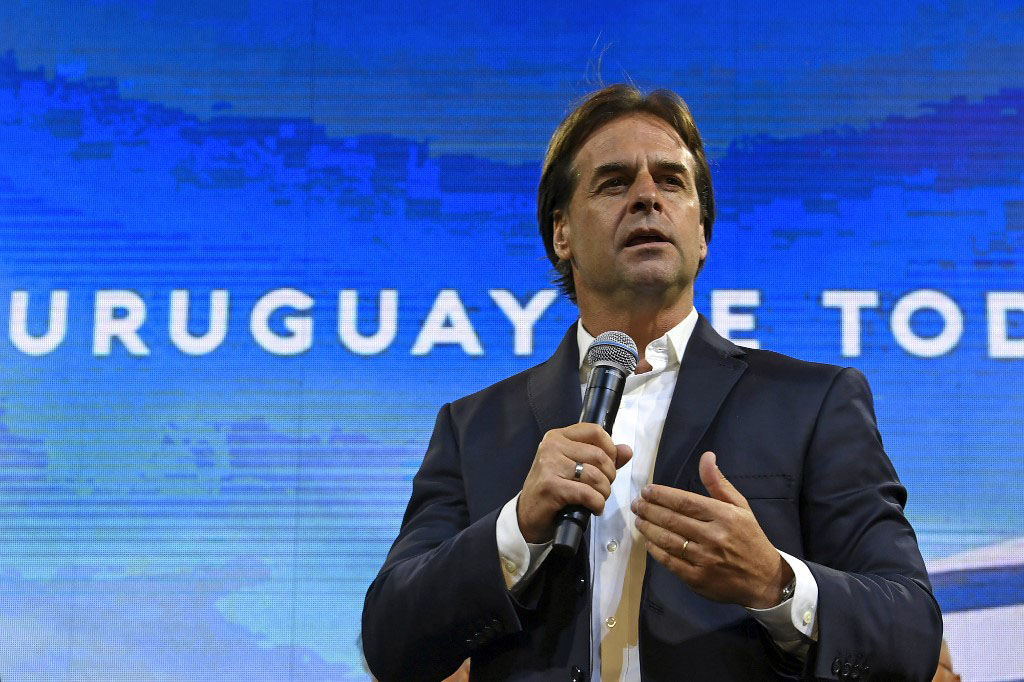RIO DE JANEIRO, BRAZIL – A commitment to those who will be the leading players in the post-pandemic rebound and the need for the State and political officials, in particular, to set an example in a crisis context: these were Uruguayan President Luis Lacalle Pou‘s main reasons for not taking the shortcut -very tempting in times of crisis and emergency – of creating new taxes – albeit temporary or “one-off”- or raising existing ones to finance public spending.
“At one point, we were under very strong pressure to create more taxes, to raise taxes on wealth, to raise taxes on people who have larger ventures, and I categorically refused,” the Uruguayan president disclosed when announcing that he would neither raise nor create new taxes.
At a time when the Argentine government is proposing a bill that sets a one-time tax on wealth – a rate of between 2.0 and 3.5 percent on fortunes between US$200 million (R$1 billion) and US$3 billion – in order to raise over US$300 billion intended to mitigate the impact of the pandemic, according to its promoters, the arguments of the Uruguayan president for not following this alternative take on special meaning.

Lacalle Pou had explained the reason for his categorical refusal to impose new charges in late June, when he announced the budget, in the following terms: “Because entrepreneurs are the ones who are driving the most and will drive the country out of this. If in the pandemic we are going to punish entrepreneurs, then we punish workers, producers, innovators, and traders.”
But the Uruguayan president did not stop there and explained that the flipside of that would be the tax on civil servants, “a tax of 20 percent of the President’s salary, his ministers, senators, deputies and all public officials who earn more than US$1,900 over two months”.
“We wanted to signal that it was the state that had to make the effort and not private individuals because it is not the state that drives the population forward once this is over. It is the private sector that starts the engines, with the assistance of infrastructures, with the assistance of communication networks and with all that the State provides, but it is the private sector that is going to start the engines stronger and move forward.”
Argentina, on the other hand, has chosen the path of taxing the private sector. At the start of the isolation measures, the government argued for maintaing the remuneration of its ministers, deputies, and senators and there was no reduction in their salaries, despite the sacrifices that were being demanded of the population in the context of the health emergency.
On the other hand, the path chosen by Kirchnerism is little traveled. Although the government argued that in many countries this type of measure “is being assessed” as a necessary tool to face the hard times affecting the whole world,” the truth is that in most cases these were opposition initiatives that did not prosper.
Moreover, in most first-world countries, taxes on wealth no longer exist.
In the United States, it was the former Democratic candidate Elizabeth Warren who proposed a two percent tax for assets over US$50 million and a three percent tax for those over US$1 billion.
In Spain, the proposal was made by the ultra-left Podemos party: two percent for assets above €1 million and 2.5 percent above €10 million, three percent above €50 million and 3.5 percent above €100 million.
“Many of the countries in which these taxes were assessed do not have one on personal assets as Argentina currently does,” said tax specialist César Litvin. “If a tax on large fortunes is passed, even if it is only a one-time tax, it will be levied on the same taxable base as the tax on personal assets. It is a duplication of a tax on the same wealth.”
In fact, Argentina already has a tax on wealth, the Personal Assets Tax, established in 1991. Very few countries have a similar tax, among them Uruguay and Spain, but with taxable minimum amounts that are not as low as in Argentina, where the tax is levied from US$3 million.
Source: infobae

